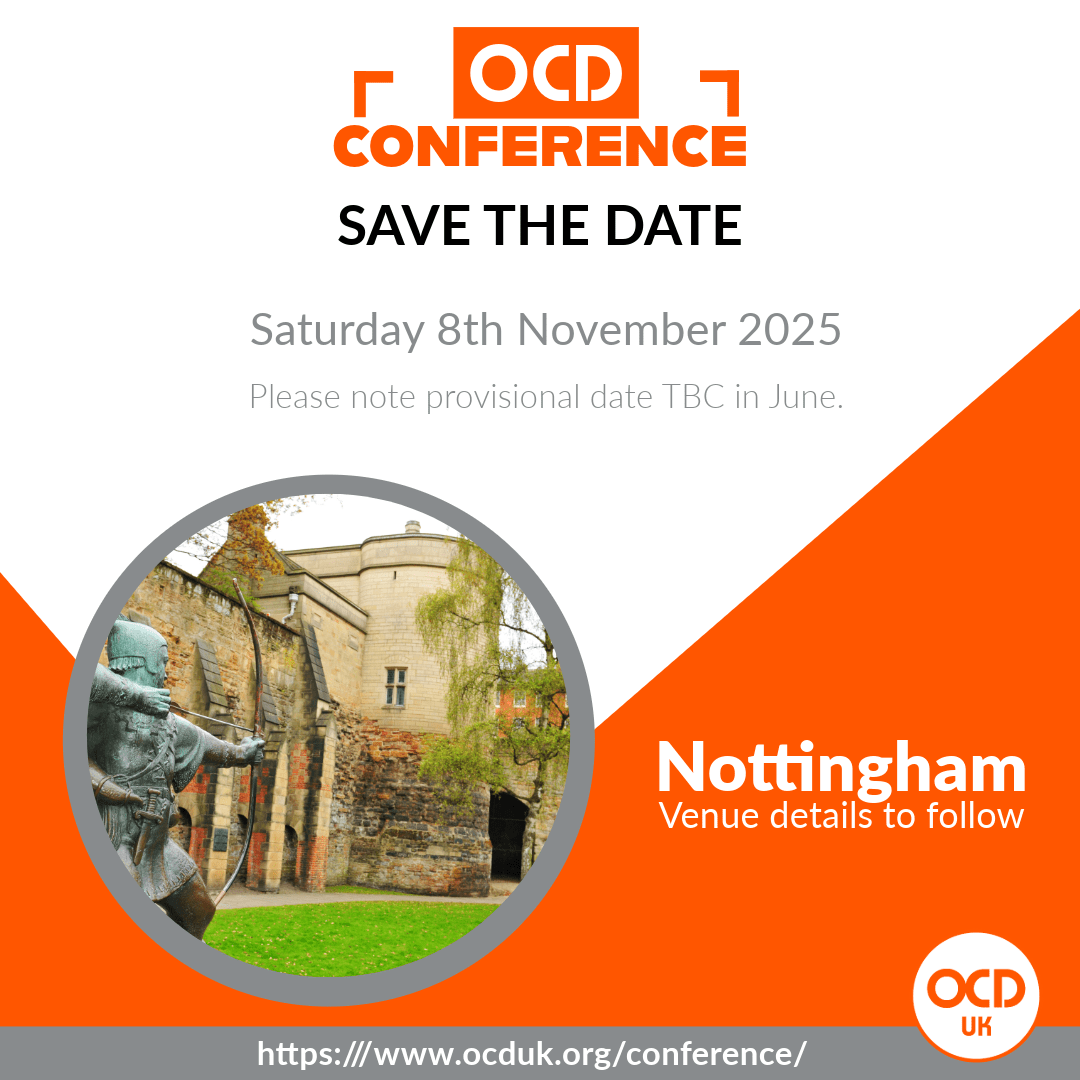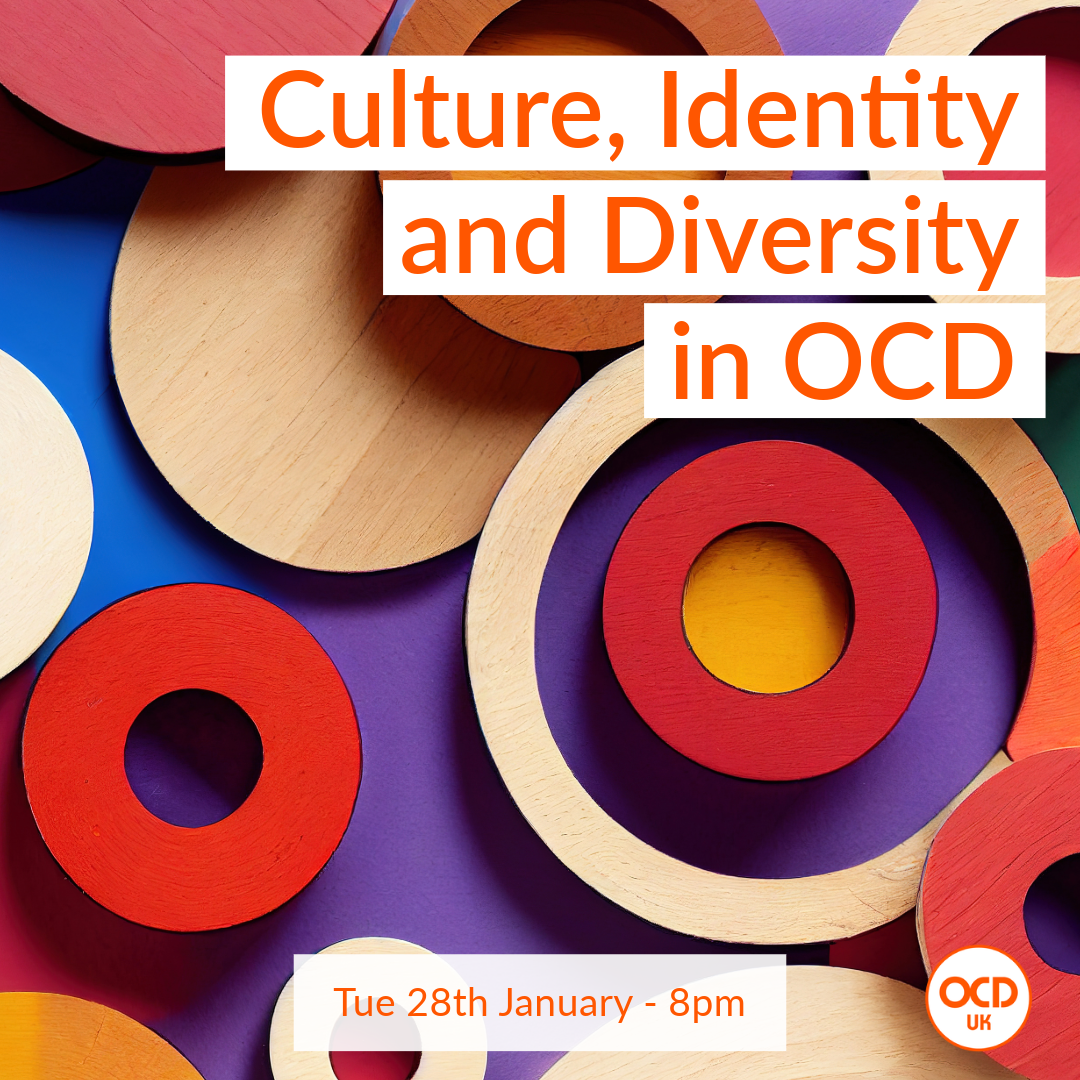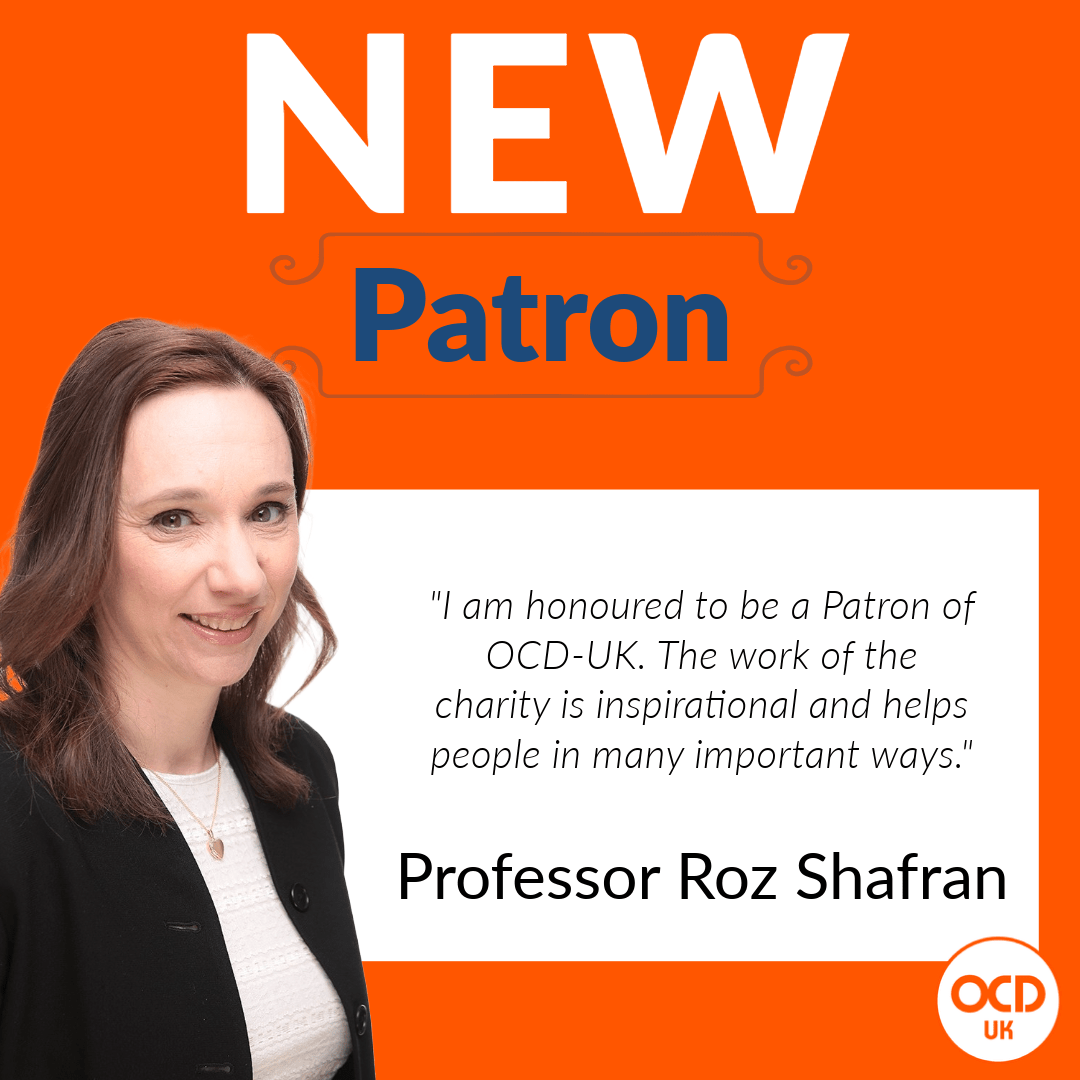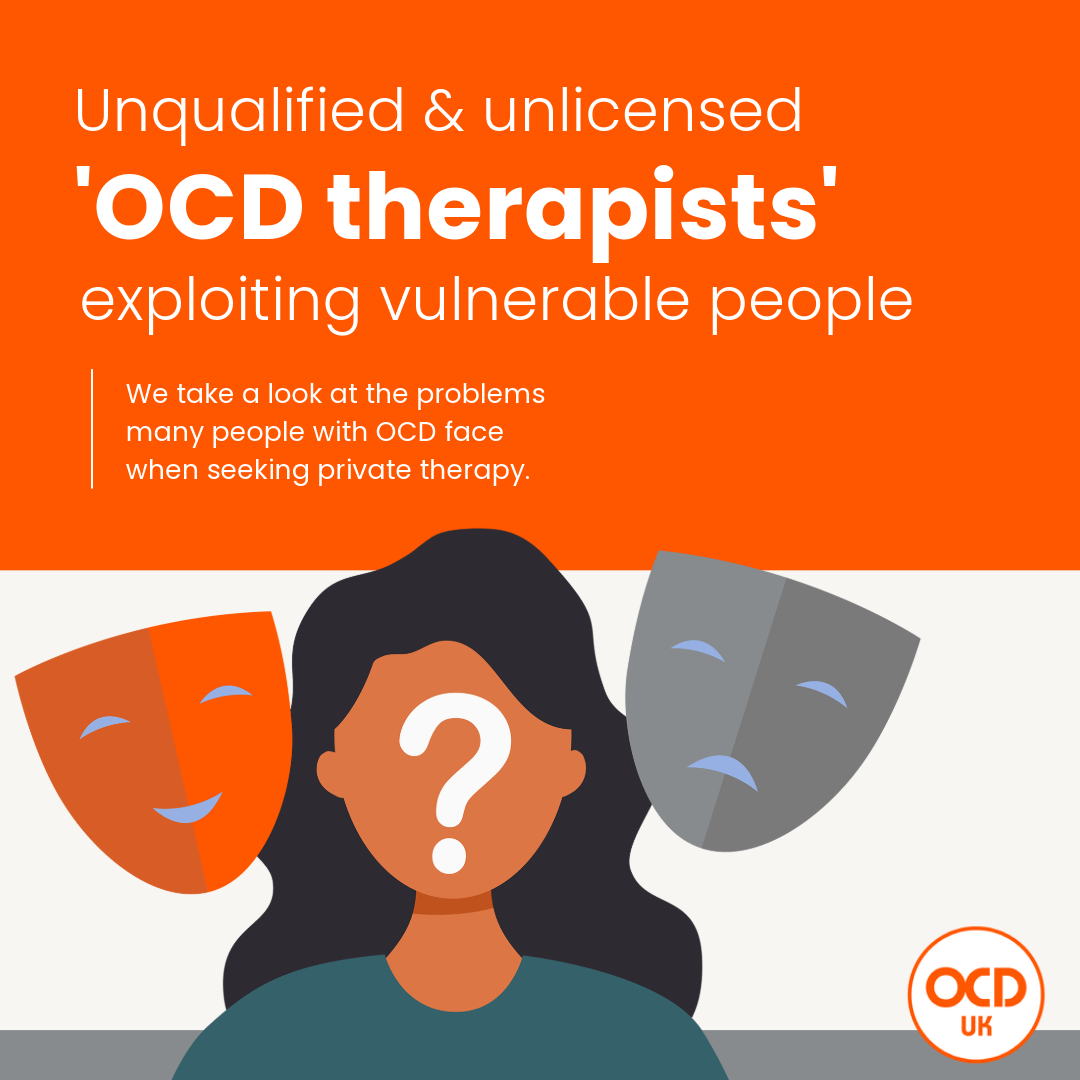
The unseen obsession
First published in 2014, Eva shares her blog and afterword with OCD-UK.
23rd April 2021
Foreword
 I wrote this piece in 2014, having left university mid-way through my second year of undergraduate studies. It was published by Rethink mental illness - a hugely scary thing at the time- especially as I was in the midst of a distressing few years.
I wrote this piece in 2014, having left university mid-way through my second year of undergraduate studies. It was published by Rethink mental illness - a hugely scary thing at the time- especially as I was in the midst of a distressing few years.
So much of my understanding about OCD has changed since I wrote this. I am now undertaking a PhD in the history of the category; a project I am sure some would be inclined to define as one big ‘compulsion’. But on the whole, thinking about OCD as a relatively recent historical phenomenon, and exploring how its central components have changed over time, has given me a great sense of ease. I feel less bound by our current conceptual frameworks and treatments, and more able to reflect on what I think is helpful and what, perhaps, is less so. The idea of the ‘self’ and its link with the ‘social’ context is something that comes across when re-reading this piece. What is it about our society which places so much emphasis on a ‘purity’ of self? (whether in terms of normativity or authenticity). Why is it that we feel so compelled to police the boundaries of our internal lives? I have many potential answers.
Despite a shift in (and a widening of) my understanding of OCD, re-reading the ‘unseen obsession’ had a huge visceral resonance. Particularly because, for those times when I continue to find myself overcome by distressing thoughts (have I committed some awful act without realizing? Have I sent an offensive email that I’ve forgotten about? How do I know that I don’t want to harm people?), it feels impossible not to hide. The content of obsessional thoughts, the shame attached to them- and the repeated experience of being misunderstood- remains a significant, and urgent, issue in the field of OCD.
I still don’t feel comfortable writing the thought.
- Eva
The unseen obsession (2014)
While people seem to have ideas regarding the nature of Obsessive Compulsive Disorder, most frequently being that it centers on order and cleanliness, there are many complex and unseen elements of the illness that rarely enter the discursive realm. I have suffered with ‘obsessional thoughts’ for the last four years, and can safely (‘safe’ being an almost non existent word for OCD sufferers) say that it is far from being about clean hands.
We grow up in an environment, which, for the most part, persuades us to be ‘good’: we are told not to steal, act violently, or behave in sexually abnormal ways. We are told that if we commit actions outside of the culturally sanctioned ways of behaving that they are ‘wrong’ and we are ‘bad’ people. While most of us adhere to this external set of guidelines, those suffering with pure OCD take matters further: we transfer this binary sense of right and wrong into an internal set of rules (which require constant policing).
I left university because of one thought.Eva
While 94% of the population suffers with thoughts termed ‘intrusive’ (unwanted thoughts of a violent or sexual nature), those with OCD interpret these thoughts as signifying an absence of morality. Thoughts that are common to everyone, thoughts that pop up out of nowhere and are likely the product of our minds making false connections, can lead us to have an identity crisis so painful that nothing else seems to matter.
I left university because of one thought. A single thought I still don’t feel comfortable writing because of what I fear it means about me. This thought gathered such power that I even ended up attacking my body in an attempt to eliminate its force. The nature of OCD doesn’t allow any freedom, it grabs for your attention every second of every day, asking:
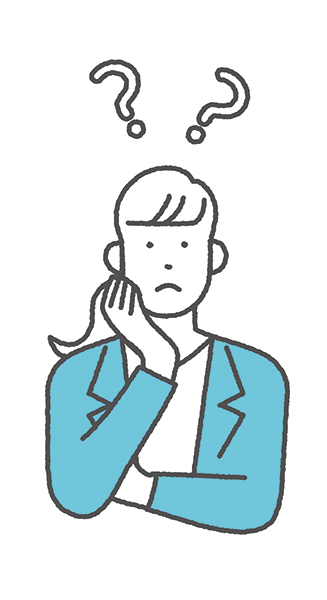
- What does the thought mean about me?
- Would I act on this thought?
- Why have I had it?
- Will it last forever?
- Can I prove it?
- Is it true?
Conversations start to falter as the thought leaps and flies through your mind, other topics seem less important, and time to yourself gives you space to assess, analyze, and look for evidence of the thought being ‘true’. Circuits in your mind seem to connect every experience to the single thought; memories are molded to justify its existence, and any confidence in yourself as ‘good’ disintegrates into dust.
Many of us have had times in our lives where we have thought a great deal about a particular person, a conflict maybe, or something we feel anxious about. Many of us are prone to ‘over thinking’. But, for those with OCD ‘obsession’ and ‘over thinking’ equate to something quite different. Obsessing for sufferers is like fighting: you push and shove your unwanted thoughts away and they come back with twice as much force. You spend time trying to avoid them and they pop up everywhere, taunting and mocking your failed attempt at running away. No matter how much you try and hide, they seem to remain beside you.
Fortunately, there are many treatments that help those with this type (and other types) of OCD. Cognitive-behavioral therapy, psychotherapy, exposure and response techniques, and psychiatric medication, all contribute to softening your reaction to these unwanted thoughts. However, the ultimate solution to gaining a feeling of safety, has to be an acceptance that these thoughts pass trough everyone’s mind. Experiencing such obsessions in silence is unbearable, so just talk to someone. You might find your mum, as mine did laugh and say ‘you’ve got to see the funny side’ or a friend who has momentarily also considered the fact that they may be an evil person. You might also find someone who has ‘recovered’ from OCD, someone who tells you that it will get easier and even admits that he believes it has made him a kinder person.
Talking is a step towards restoring your fractured sense of self.











